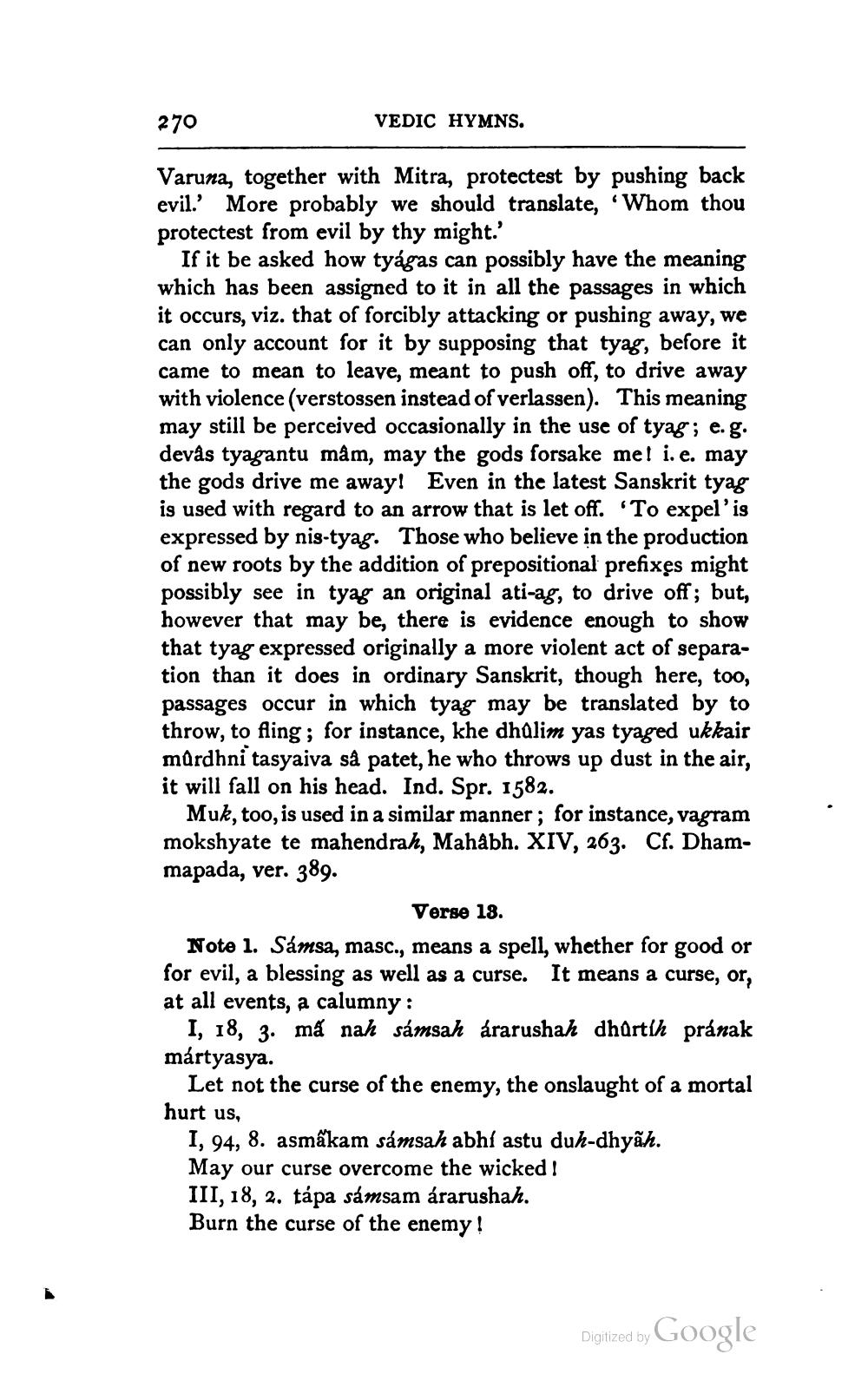________________
270
VEDIC HYMNS.
Varuna, together with Mitra, protectest by pushing back evil.' More probably we should translate, Whom thou protectest from evil by thy might.'
If it be asked how tyágas can possibly have the meaning which has been assigned to it in all the passages in which it occurs, viz. that of forcibly attacking or pushing away, we can only account for it by supposing that tyag, before it came to mean to leave, meant to push off, to drive away with violence (verstossen instead of verlassen). This meaning may still be perceived occasionally in the use of tyag; e.g. devas tyagantu mâm, may the gods forsake met i.e. may the gods drive me away! Even in the latest Sanskrit tyag is used with regard to an arrow that is let off. 'To expel'is expressed by nis-tyag. Those who believe in the production of new roots by the addition of prepositional prefixes might possibly see in tyag an original ati-ag, to drive off; but, however that may be, there is evidence enough to show that tyag expressed originally a more violent act of separation than it does in ordinary Sanskrit, though here, too, passages occur in which tyag may be translated by to throw, to fling; for instance, khe dhalim yas tyaged ukkair mardhni tasyaiva så patet, he who throws up dust in the air, it will fall on his head. Ind. Spr. 1582.
Muk, too, is used in a similar manner; for instance, vagram mokshyate te mahendrah, Mahâbh. XIV, 263. Cf. Dhammapada, ver. 389.
Verse 18. Note 1. Sámsa, masc., means a spell, whether for good or for evil, a blessing as well as a curse. It means a curse, or, at all events, a calumny:
I, 18, 3. má nah samsah árarushah dhartih prának mártyasya.
Let not the curse of the enemy, the onslaught of a mortal hurt us,
I, 94, 8. asmäkam sámsah abhi astu duh-dhyâh. May our curse overcome the wicked ! III, 18, 2. tápa samsam árarushah. Burn the curse of the enemy!
Digitized by
Digitized by Google




